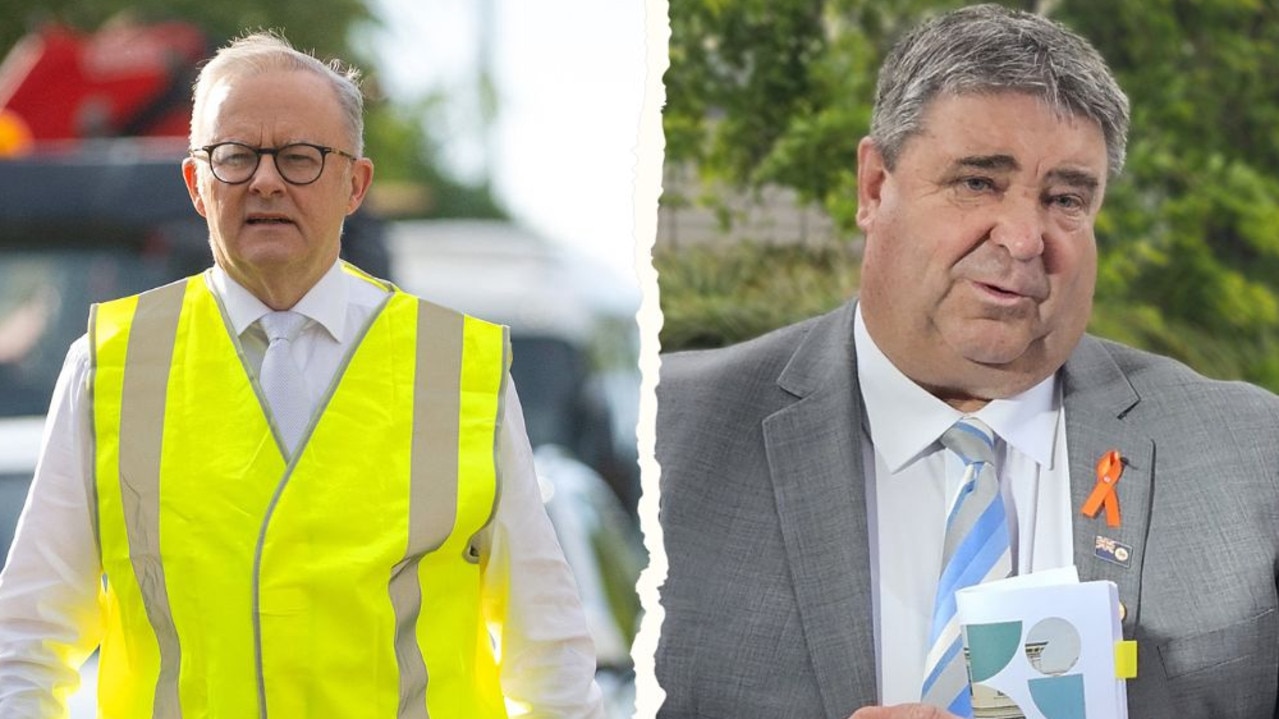Liberals’ gaming reform legislation passes House of Assembly
Opponents of the government’s gambling industry reforms are pinning their hopes on the Upper House to introduce tougher harm minimisation measures. THE REACTION >>>
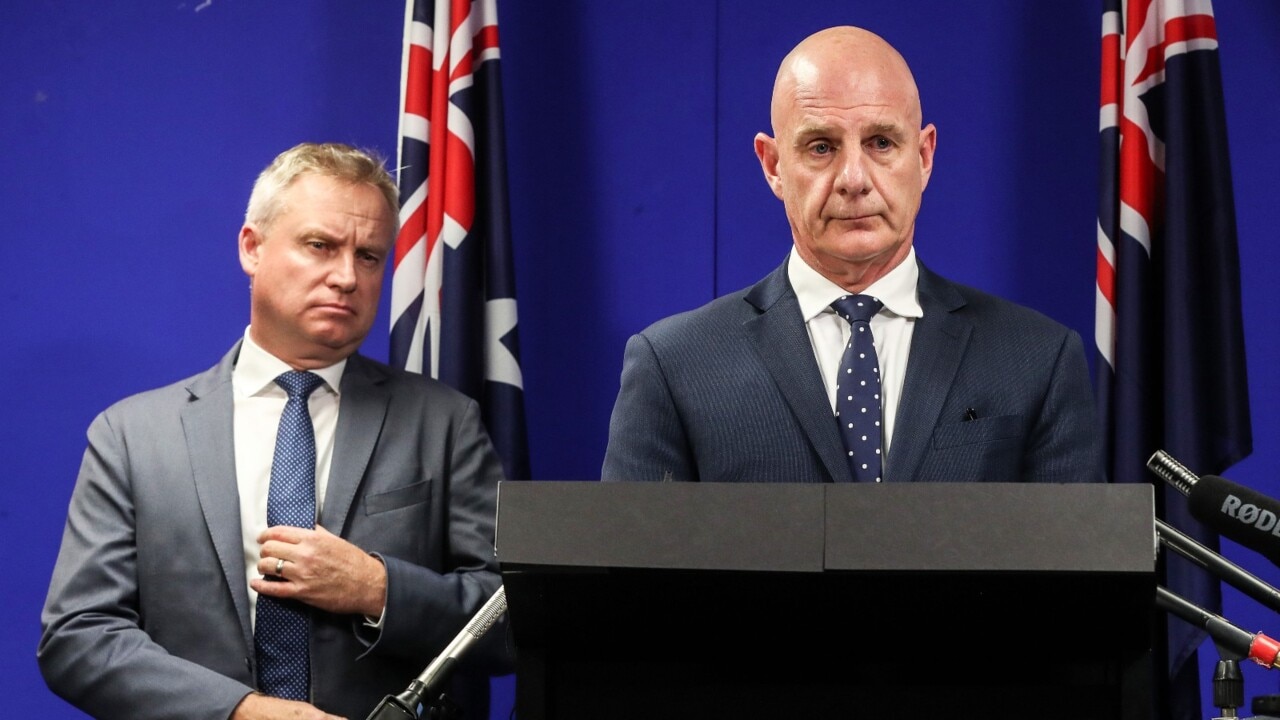
Politics
Don't miss out on the headlines from Politics. Followed categories will be added to My News.
OPPONENTS of the Liberal government’s gambling industry reforms are pinning their hopes on the Upper House to introduce tougher harm minimisation measures.
The House of Assembly passed the bill shortly before midnight on Wednesday after more than 23 hours of debate over several sitting days.
The legislation enacts policies the government took to two elections: ending Federal Group’s poker machine monopoly, allowing pubs and clubs to own the machines and issuing new casino licences.
Labor voted with the government in favour, the Greens and independent Kristie Johnston were opposed.
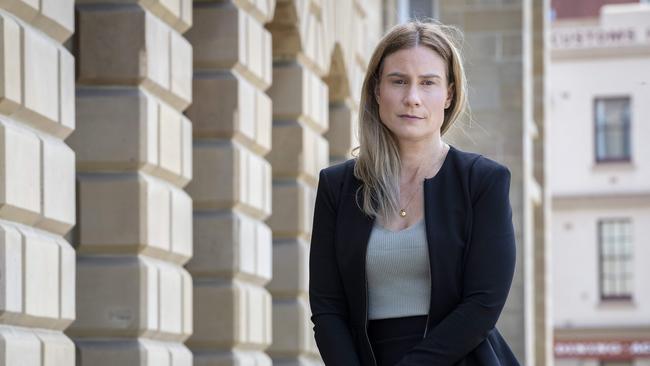
Ms Johnston accused Labor — which took an anti-pokies policy to the 2018 election — of selling out.
“Tasmanians were left in no doubt yesterday that the Labor Party has fundamentally lost its moral compass when it voted in lock-step with the Liberals to pass so-called gambling reform legislation in the House of Assembly,” she said.
“I know the Liberals don’t care about the suffering poker machines bring to our suburbs, but I held out a glimmer of hope that Labor would find a conscience when it came to the crunch,” Ms Johnston said.
“But no. Labor has abandoned the very people it always claims it represents: the poor, the vulnerable, and the battlers.”
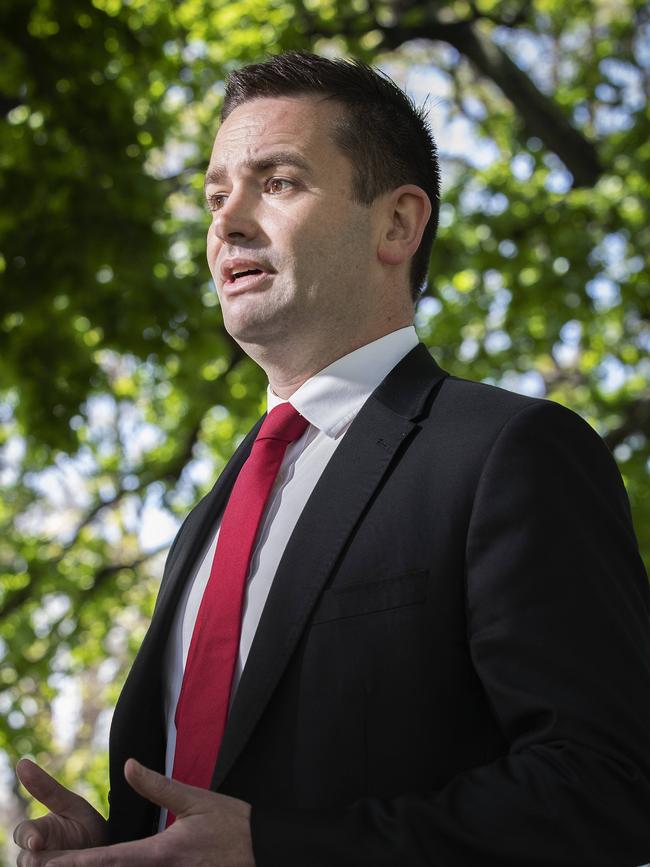
Labor’s Dean Winter said Labor had managed to move amendments to insert harm minimisation measures into the bill, but the issue had been settled by voters at the 2018 election.
“All legislators were given a choice with this legislation: we either back that legislation that ended the Federal Groups monopoly on gaming machines in Tasmania or we voted against and kept the exact same thing in place,” he said.
Leader of Government Business Michael Ferguson welcomed the progress of the bill.
“I’m grateful for the bipartisanship that we’ve seen on this policy being delivered, it was a mandate at the election,
“Importantly, despite the false claims of Cassy O’Connor, who’s acting, who’s acting in a way, really, I think that’s against the harm mitigation measures, we are going to deliver some of the most nation-leading harm reduction measures in Australia
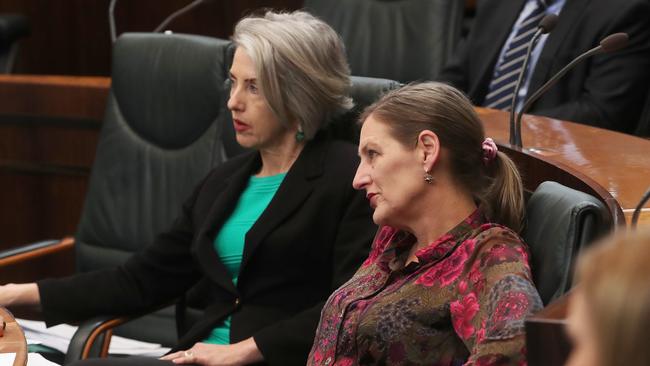
Greens leader Cassy O’Connor said it was now up to the Upper House — where four Liberal and five Labor MLCs it among the 15 members.
“Under the cover of darkness, Labor voted with the Liberals more than 40 times to push this sickening and parasitic Bill through the Lower House,” she said.
“These two old, amoral parties long ago forgot what principles look like. They were both far too content to do the bidding of the Tasmanian Hospitality Association and their donors in the gambling industry.
“The Bill will now go to the Upper House. We hope Labor find their spine, and soul, some time in the next week, but we won’t hold our breath.”
Gambling reform legislation passes House of Assembly
UPDATE, 11.30pm Wednesday:
The Liberals’ controversial gambling reforms legislation has passed parliament’s House of Assembly.
The vote occurred just after 11pm on Wednesday. The Bill will now go to the Legislative Council.
Government Minister Michael Ferguson declared the legislation “ends the monopoly” of Federal Group over the state’s poker machines.
“The Future Gaming Market policy ends the Federal Group monopoly and means we have more money for essential services such as health and education, certainty and security for jobs in pubs and clubs, more support for problem gamblers and less for the Federal Group,’’ he said.
Labor MP Dean Winter said the party had chosen to support the legislation because it ended Federal Group’s monopoly and was better than the current laws.
“By voting with the Bill we vote for a piece of legislation that we wouldn’t have proposed, but something that we fundamentally believe is better than the current arrangements,’’ he said.
Independent Clark MP Kristie Johnston, along with Greens MPs proposed many amendments to the Bill, had called for greater harm minimisation measures.
“What we have before us again is a Bill all about profit, maximisation and unfortunately not about harm minimisation,’’ she said.
“It really saddens me the way there has been wilful blindness of the harm that has been caused by poker machines in our community.
“We’re talking about people’s livelihoods, we’re talking about domestic violence, we’re talking about people stealing from their employers, people losing their homes, and most sadly, people losing their lives.”
Greens leader Cassy O’Connor condemned the Bill, saying it did not do enough to protect the people dealing with gambling addiction.
“Unlike the Labor Party, the Greens were proud to stand by our policy to remove pokies from pubs and clubs,’’ she said.
“We spent the 23 hours of debate on this quid pro quo Bill trying to remove the most dangerous elements, amend it and build in harm minimisation measures.
“It was only Rosalie Woodruff and I, along with Independent Member for Clark, Kristie Johnston, who were steadfast in opposition to this Bill – acting in the public interest.”
UPDATE, 10.30pm Wednesday:
The state government has moved to gag debate on controversial gambling industry reforms after the parliamentary sitting stretched well into the evening.
Government Minister Michael Ferguson moved that the Bill be considered urgent, meaning time for debate is limited to 11.26pm on Wednesday.
The motion was carried by the casting vote of the chair after a tied vote of 12-12.
Mr Ferguson argued non-government members had failed to manage their time properly by repeating themselves and calling for divisions on votes on amendments.
“By 11.26pm tonight, the house would have debated this Bill for 23 hours,’’ he said.
“Members have been given plenty of time to scrutinise this Bill.”
Greens leader Cassy O’Connor described the move as a “disgraceful manouvre”.
“We’re here represenitng the community interest ... who have not been heard in the development of this legislation,’' she said.
“You should debate a Bill like this for as long as it takes.”
Independent MP Kristie Johnston said it was “disgusting” that debate had been gagged.
EARLIER:
THE Liberals’ controversial gambling industry reforms are likely to pass the Lower House by the end of the week, with debate continuing well into the evening during a marathon sitting of parliament on Wednesday.
At-times heated debate on the Gaming Control Amendment (Future Gaming Market) Bill has continued in the House of Assembly.
The Bill seeks to end Federal Group’s monopoly on poker machines in Tasmania, and allows for two more casinos, among other measures.
The Greens and the independent member for Clark Kristie Johnston have moved a number of amendments, all of which have been voted down.
Labor members had voted with the government on all but two of the 38 amendments moved during debate until late Wednesday.
MPs debated amendments on harm minimisation measures like $1 bet limits, slower spins, pre-commitment limits, limiting gambling advertising and incentives to lure gamblers in.
Facial recognition technology to detect excluded gamblers, and the hours of operation for venues with poker machines were also strongly debated by MPs.
“It’s absolutely obscene there are poker machine venues open for 20 hours a day,’’ Ms Johnston said.
“They are not recreational players, they are people that are addicted to poker machines.”
Greens leader Cassy O’Connor took aim at the Labor Party, who took a policy to remove pokies from pubs and clubs to the 2018 election, but have supported the government’s legislation.
Ms O’Connor accused Labor of not following through on its promise to focus on harm minimisation after dropping the policy it took to the 2018 election.
“Your leader made a promise,’’ she said.
Labor MP Dean Winter said if the legislation did not pass, Federal Group’s long-held monopoly would continue to “roll on”.
The legislation also allows for the potential for two high-roller casinos for mainland visitors only, one each in the state’s south and north.
Ms O’Connor asked whether it was constitutional to prevent Tasmanians from visiting those venues under the legislation.
Government Minister Michael Ferguson said it was, but said the future opening of the high-roller casinos was not guaranteed under the legislation.
If it secures passage through the Lower House as expected, the Bill would then be considered by the Legislative Council.
Cash for cans laws reach Tasmanian parliament
A long-awaited bill to establish a container deposit scheme in Tasmania has been tabled in state parliament.
The scheme includes assistance for small Tasmanian drink manufacturers and will make it easier for the public to donate their deposits to charities.
The new law is expected to apply a 10c deposit to around 270m drink containers a year from the end of 2022.
Environment Minister Roger Jaensch said community and industry feedback had shaped the final draft.
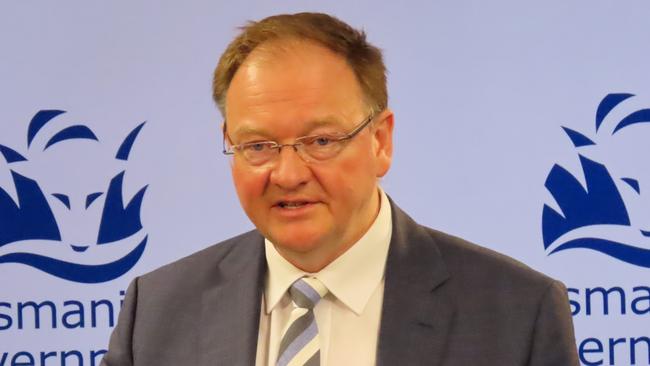
“There will be a grants program for Tasmanian small beverage producers to reduce the administrative and transitional costs of entering the scheme, such as adopting barcodes for their products for the first time,” he said.
“In addition, all beverage producers will be exempt from paying into the scheme for the first 20,000 containers they sell each year.”
The proposed scheme had been tailored to ensure community groups could benefit from a potential new source of revenue, the Minister said
“All charities and community groups will be able to receive donations of containers from the community and collect 10 cents per container for their organisation.
“Some organisations may also enter agreements to operate refund points and receive payments for handling and sorting returned containers.
“I am able to announce today that all Tasmanian charities and community groups will be able to register for a refund account so members of the public can donate their container refunds directly electronically to the charity or community group of their choice.”
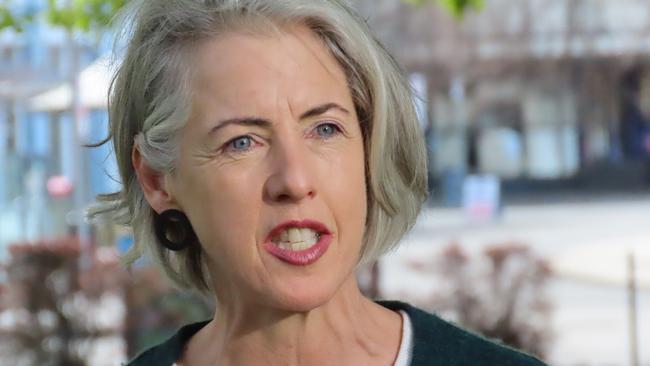
Greens Environment and Biodiversity spokeswoman Rosalie Woodruff welcomed the scheme.
“After decades of avoidable environmental harm, this action has been too long coming,” she said.
“A container refund scheme for Tasmania has been Greens’ policy for decades and we are pleased it is finally becoming a reality.
“The Greens, community groups and conservationists encountered Liberal ridicule, resistance and delay towards implementing a container deposit scheme, as they fought against legislating product stewardship on behalf of their big corporate mates.
“The result has been years of preventable roadside rubbish, and marine plastic pollution that has choked and starved bird and sea life, and permeated the food web.
The not-for-profit lobby group established by major manufacturers Coca-Cola Amatil and Lion Co said the legislation would short-change the community.
“Typically, the return in alternative community (producer responsibility) schemes is around 6.5 cents per container, compared to just 3.5 cents per container under the Government’s proposed model.
“Based on our calculations of likely volumes, this will mean $5 million per year less to local community groups, which will instead likely go to a for-profit big waste operator and deliver less jobs.”
“This means that social enterprises and their employees who could have been major beneficiaries from the scheme and who could have provided more positive employment outcomes will be far less likely to do so now.”
Claims Tasmania’s proposed container deposit scheme was defective were misleading
CLAIMS by major beverage manufacturers that Tasmania’s proposed container deposit scheme was defective were misleading, an anti-pollution group says.
Legislation to introduce a 10c refundable deposit on drink containers is being considered by state parliament.
But big drink companies have demanded changes to the scheme.
Reloop Australia says the proposed model is right for Tasmania and delivers benefits to the community and not big companies.
“Unfortunately, as part of their political campaign to get control of Tassie’s bottle and can
refund scheme, Coca Cola and friends have misled and lied to Tasmanian sporting and
charity groups to try and co-opt them into supporting Coke’s agenda, Reloop Pacific director Robert Kelman said.
He said that if the government heeded Coca Cola’s demands, the state would end up with a low-performing scheme, with inconvenient refund points across the state.
“This means consumers can’t simply get their refund back and beverage producers pocket their money,” he said.
Government still keeping public in the dark, Ombudsman reveals
TASMANIAN government departments are still slow to respond to Right to Information requests and stingy with the information they provide, the Ombudsman says.
In his annual report, tabled in state parliament on Tuesday, Richard Connock says he has given up repeating appeals for agencies to be more transparent.
“There is still much to be done by public authorities and ministers to improve and enhance the release of information in accordance with the object of the Act,” Mr Connock wrote.
“In previous annual reports I have commented on deficiencies in the administration of the Act, but it may be time now rather than to repeat the same critique again (though it remains apposite) to make some suggestions about how compliance with the Act might be achieved.”
Tasmanian agencies subject to Right to Information legislation meet the minimum statutory time frames only 74 per cent of the time.
Mr Connock said his office was happy to give agencies advice on how to comply with the act if they wanted it.
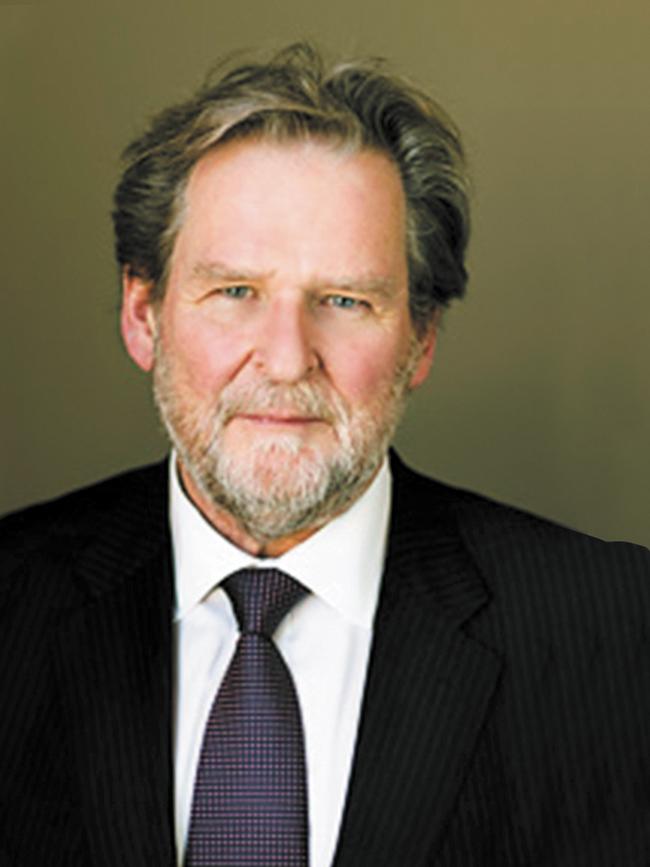
Of the 16 RTI decisions which were reviewed by the Ombudsman’s office, the agency’s decision was varied in six cases and set aside in four, with the remainder upholding the original decisions.
Elsewhere in his annual report, the Ombudsman criticised the handling of a complaint of sexual misconduct brought against a University of Tasmania student.
He said the accused student had been barred from student accommodation and suspended from study for two semesters after a flawed investigation and disciplinary process.
Among the shortcomings were the use of the wrong behaviour policy, limited investigation of the complaints, failure to hear from the complainants during the hearing, the withholding of evidence from the accused student and “poorly expressed or inadequate reasons for the decision”.
The student was given an apology, although the university declined the Ombudsman’s suggestion of vacating the findings.
“I remain concerned about the major administration issues with disciplinary processes at UTas which were uncovered through this complaint,” the Ombudsman noted.
State sector sees jump in workplace grievances
The number of formal grievances raised by public sector workers rose by 15 per cent in 2020/21, the latest State Service annual report reveals.
There were 204 grievances raised across eight government agencies about work performance issues, employee conflicts, allegations of misconduct, management decisions, bullying or harassment and sexual harassment.
It is an increase from 178 the previous year. There were 44 complaints about bullying and sexual harassment.
Of the 204 grievances raised: 43 were resolved by agreement, 49 upheld, 46 dismissed and four withdrawn. A further 62 were carried forward without result.
The Tasmanian State Service grew by 985 workers, or nearly four per cent during the financial year.

The bulk of the growth was due to recruitment by the Department of Health, which took on 540 additional workers. The state service workforce stood at 26,274 employees at 30 June.
Health and education account for three-quarters of government employees, with 19,144 workers between them, while the Macquarie Point Development Corporation, with 9.93 staff is the state’s smallest government agency.
The public sector workforce is 71 per cent female, although the heads of agencies are 68 per cent male and the senior executive service is 46 per cent male.
The report notes there were 105 allegations of breaches of the state service code of conduct, with 25 breaches identified. There were 59 employees suspended during investigations into their conduct.
A total of eight employees were terminated across the entire state sector, five for breaches of the code of conduct, two for inability to perform their duties and one probationary employee.
Bumper profit for government-owned insurer
GOVERNMENT-owned insurer MAIB made a $302m profit in 2020/21 thanks to bumper investment returns on its massive cash reserves.
The business has budgeted a $60m profit, meaning the final result was a 37 times the previous year’s $8.1m profit.
Around $48m of the profit will be returned to the government as a dividend.
Expenses were just over half of what was expected: $73m compared with a budgeted $142m as claims fell 5.7 per cent to their level in five years despite an 3.6 per cent increase in the number of registered vehicles.
The MAIB has $2.1b in investments at the end of the financial year and earned $256m in income over the 12 month period, with an annual return on investments calculated at 14.2 per cent.
Those reserves would be sufficient to cover around 28 years of claims at present rates.
Motorists paid $156m into the MAIB through their compulsory third-party insurance as part of their registration last financial year.
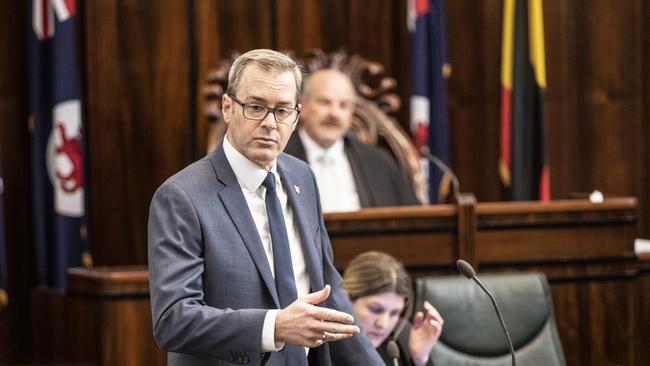
Minister for Infrastructure and Transport Michael Ferguson said the state’s motor vehicle registration was the cheapest in the nation.
“This is despite the MAIB scheme providing arguably the best overall no-fault benefits to those injured through motor vehicle crashes, as well as achieving consistently high client satisfaction.
“As at July 1, 2021, the highest premium for a standard four cylinder vehicle in Australia was well over $800, compared to Tasmania’s current premium of $564.51.
“The organisation’s consistently low premiums assists in cost of living pressures, as well as ensuring those that are injured in crashes are provided appropriate care and support, on a no fault basis.
“MAIB is well positioned in terms of its long-term financial position, while consistently providing strong returns to Government.”
MAIB premiums were cut by four per cent last year.




